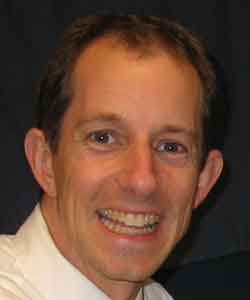Raphael Bernier
http://faculty.washington.edu/rab2
What does your research focus on?
Broadly speaking my research focuses on autism spectrum disorders (ASD) — spanning etiology, neuroscience, diagnosis, and intervention. More specifically, I am interested in bridging the gap in our understanding of the relationship between putative causal genetic events, neurological underpinnings of deficits in social cognition, the behavioral presentation of ASD, and how to intervene to address the challenges in social cognition.
What drew you to this line of research and why is it exciting to you?
In my previous clinical career, my focus was on the treatment of children with significant emotional and behavioral disturbances. I was struck by the challenges in social interactions common to most of the children with whom I worked. I wanted to explore and understand the biological contributions that unfolded within a developmental process to result in these social deficits. I thought that ASD, a disorder primarily of social cognition, was the perfect way to study this. When I made the career switch, one of the first things I noticed about research in ASD was the involvement of parents and families in the research process; their support and investment energizes my own devotion to this clinical research.
Who were/are your mentors or scientific influences?
When I made the switch strictly from clinical work with children and families to clinical research, I was fortunate to jump into the field of ASD research under the mentorship of Dr. Susan Folstein. As one of the pioneers of the genetics of ASD, her tutelage paved the way for my career in ASD. Then, as a doctoral student I had the opportunity to train under Dr. Geraldine Dawson. Under her guidance and mentorship, I gained a broad understanding of typical and atypical child development and learned how to conduct clinical research in ASD. Both of these mentors have served as an inspiration and guide for me in my clinical research pursuits. My other scientific influences are the children and families who come into the clinic or participate in my research studies. Each visit drives my curiosity and each question or concern raised by a parent spurs me to find more answers.
What’s your future research agenda?
I aim to remain actively involved in clinical research at the intersection of etiology, the brain, and treatment of autism spectrum disorders. I am interested in leveraging technological advances in genetics to study genetically defined subgroups in ASD to inform developmental biological pathways and guide intervention programs. Only through collaborations with families and incorporating expertise from multiple disciplines can we address the questions facing the field. I aim to continue my collaborations to advance our understanding and improve lives for families and individuals impacted by ASD.
What publication are you most proud of?
Bernier et al. (2010). Psychopathology, Families, and Culture: Autism. Child and Adolescent Psychiatric Clinics, 19, 855-867
I am most proud of my clinically focused, review paper focusing on the cultural influences on our perceptions and understanding of ASD. As a returned Peace Corps volunteer, I have a strong investment in considering cultural influences in not only how we diagnose and intervene with ASD, but also in how we conduct and interpret findings in developmental studies.






APS regularly opens certain online articles for discussion on our website. Effective February 2021, you must be a logged-in APS member to post comments. By posting a comment, you agree to our Community Guidelines and the display of your profile information, including your name and affiliation. Any opinions, findings, conclusions, or recommendations present in article comments are those of the writers and do not necessarily reflect the views of APS or the article’s author. For more information, please see our Community Guidelines.
Please login with your APS account to comment.